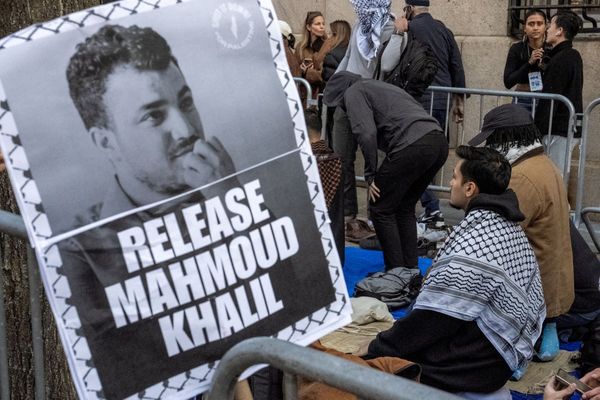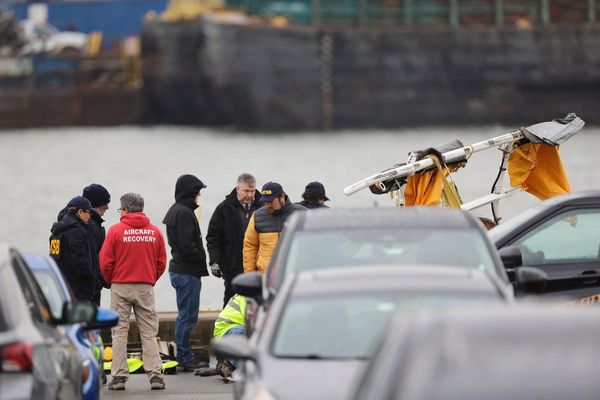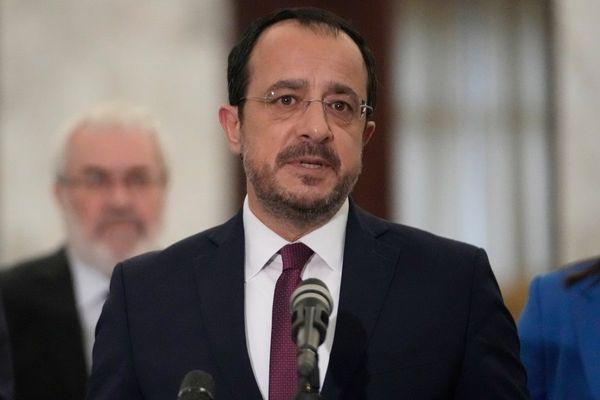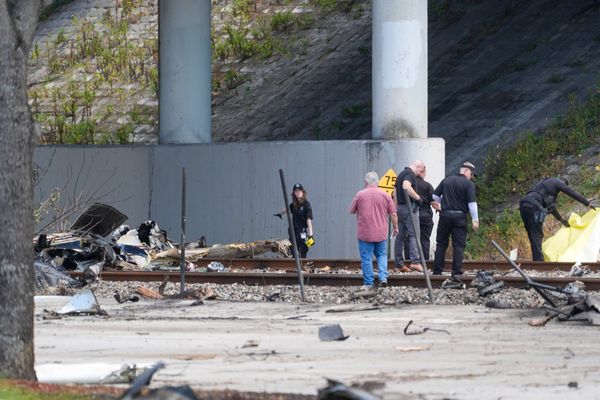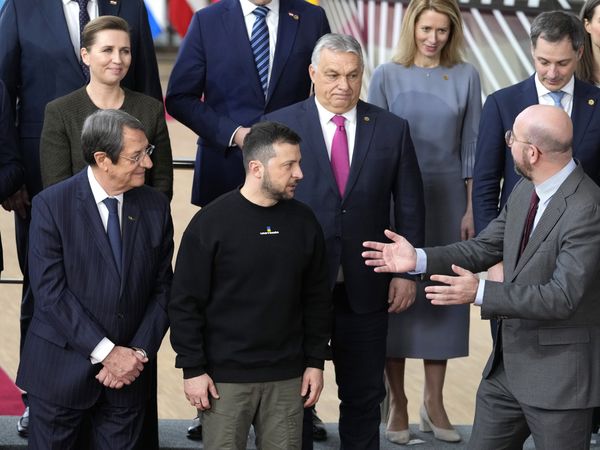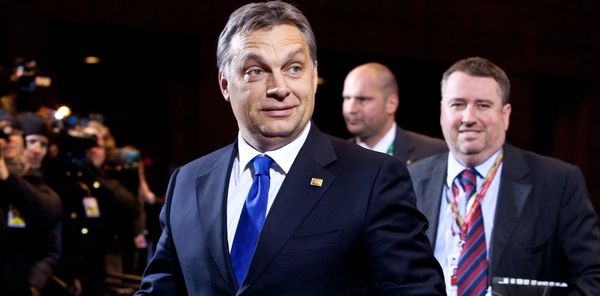Ukraine's talks on EU membership are a "turning point" for European security which could see the bulk of the country emerge thriving in a South-North Korea style split, a leading expert said on Friday.
Lord Ricketts, a former British National Security Adviser and ambassador, believes that the "strategic direction towards NATO/EU membership is now set" for Kyiv.After the opening of EU accession talks with Ukraine, the peer tweeted: "This is a turning point for European security.
"Even if the Russian invasion ends in stalemate and a truce and Ukraine divided, getting 80% of Ukraine into NATO then EU makes a further war much less likely."
He believes Vladimir Putin's invasion, launched in February last year, will get bogged down into a "frozen conflict" with the Russian president unable to achieve a victory.
Both he and Ukraine's president Volodymyr Zelensky could come under pressure to strike a deal to end the bloodshed, the latter possibly next summer ahead of the US presidential elections which could see Donald Trump back in the White House.
For Putin, the pressure could be from a rising Russian casualty toll, already put at 350,000 dead and wounded, and the failure to make any decisive breakthroughs.
Lord Ricketts stressed: "There are no signposts at the turning points of history. That’s why I’m flagging up this one.
"There are plenty of tactical problems ahead on funding and arming Ukraine to fight this to a stalemate.
"But the strategic direction towards NATO/EU membership is now set.
"My message is that Ukraine should not be afraid to settle for a truce if that’s all they can achieve.
"Getting Free Ukraine into Western economic and defence structures secures their future. Although no parallel is exact, think how North and South Korea have fared since 1954!"
Earlier, Mr Zelensky hailed the “heroic bravery” of Ukraine and its boost from taking a step towards European Union membership.
But the celebrations in Kyiv were marred by Hungary blocking a new £43 billion financial package from the European Union for the war-ravaged country.
Officials, though, hope the funding can be pushed through in the New Year.
Right now in Ukraine, a lot of us are feeling really uplifted, and it’s a big deal – it keeps us going. I want to say a huge thank you – to each of you for everything we’ve managed to accomplish! To all those who strengthen Europe by the unity of Ukraine. A special gratitude to… pic.twitter.com/uCnqU5Y5Le
— Volodymyr Zelenskyy / Володимир Зеленський (@ZelenskyyUa) December 15, 2023
Ukraine’s president Mr Zelensky tweeted about the move towards EU membership: “Right now in Ukraine, a lot of us are feeling really uplifted, and it’s a big deal – it keeps us going.
“I want to say a huge thank you – to each of you for everything we’ve managed to accomplish! To all those who strengthen Europe by the unity of Ukraine.”
He added: “A special gratitude to all our guys and girls who are in the fight for Ukraine. To those who are battling right now, defending our freedom, helping our soldiers – treating them, training them, getting weapons to them, and making those weapons.
“All we achieve, would have been impossible without that heroic bravery of our people, our nation, which inspires the whole world.”
But the European Union failed to agree on a 50 billion euro (£43 billion) aid package for Ukraine, even after deciding to open accession negotiations with the war-torn country.
The aid was vetoed by Hungarian Prime Minister Viktor Orban, an ally of Vladimir Putin, delivering another tough blow to Mr Zelensky after he failed this week to persuade US politicians to approve an additional 61 billion dollars (£47.8 billion), mainly to buy weapons from the US.
There are hopes, though, in European capitals, that this funding will be agreed in the New Year.
In London, a minister stressed that Britain is one of Ukraine’s “staunchest allies” as the financial aid packages for Kyiv were blocked in both Washington and Brussels.
Science Minister Andrew Griffith emphasised that the UK had given more than £4 billion of support to Ukraine.
“I’m proud that the UK can count itself amongst one of Ukraine’s staunchest allies," he told LBC Radio.
“We were the first to train and have span up one of the largest ever training programmes of foreign troops. I think that’s something that’s very, very well supported by people in this country. Many, many opened their homes, including myself, to Ukrainians as part of the Homes for Ukraine scheme.
“And long may that continue.”
The start of EU accession talks was a significant moment for a country at war that had struggled to find the backing for its membership aspirations and long faced obstinate opposition from Mr Orban.
Hungary’s leader decided not to veto the accession talks, but then blocked the aid package.
“I can inform you that 26 leaders agreed on the (budget negotiation),” European Council president Charles Michel said. “I should be very precise. One leader, Sweden, needs to consult its parliament, which is in line with the usual procedure for this country, and one leader couldn’t agree.”
The decisions required unanimity among the EU’s members.
Mr Michel, who was chairing the Brussels summit, called the start of accession talks “a clear signal of hope for their people and our continent”. He said leaders would reconvene in January.
Although the process between opening negotiations and Ukraine finally becoming a member could take many years, Mr Zelensky welcomed the agreement as “a victory for Ukraine. A victory for all of Europe”.
“History is made by those who don’t get tired of fighting for freedom,” he said.
The financial package could not be endorsed after Mr Orban vetoed both the extra money and a review of the EU budget having warned the summit that forcing a decision on the Ukraine issues could destroy EU unity.
Mr Orban said that his opposition remained steadfast, but that he decided not to use his veto because the 26 other nations were arguing so strongly in favour. Under EU rules, an abstention does not prevent a decision from being adopted.
The Hungarian leader is understood to have left the room at the voting stage rather than blocking the membership decision.
Irish Prime Minister Leo Varadkar said: “In fairness to Prime Minister Orban, he made his case, made it very strongly. He disagrees with this decision and he’s not changing his opinion in that sense, but essentially decided not to use the veto power.
“I respect the fact that he didn’t do that, because it would have put us in a very difficult position as a European Union.”
Belgian Prime Minister Alexander De Croo called the opening of membership discussions a black eye for Russian President Vladimir Putin.
“It is a very clear message to Moscow. Us Europeans, we don’t let go of Ukraine,” he said.
He said he thought Mr Orban “didn’t use his veto because he realised that it would be indefensible”.
At the same time as Ukraine, the EU leaders also decided to open membership negotiations with Ukraine’s neighbour Moldova.
US national security adviser Jake Sullivan welcomed “the EU’s historic decision to open accession negotiations with Ukraine and Moldova, a crucial step toward fulfilling their Euro-Atlantic aspirations”.

